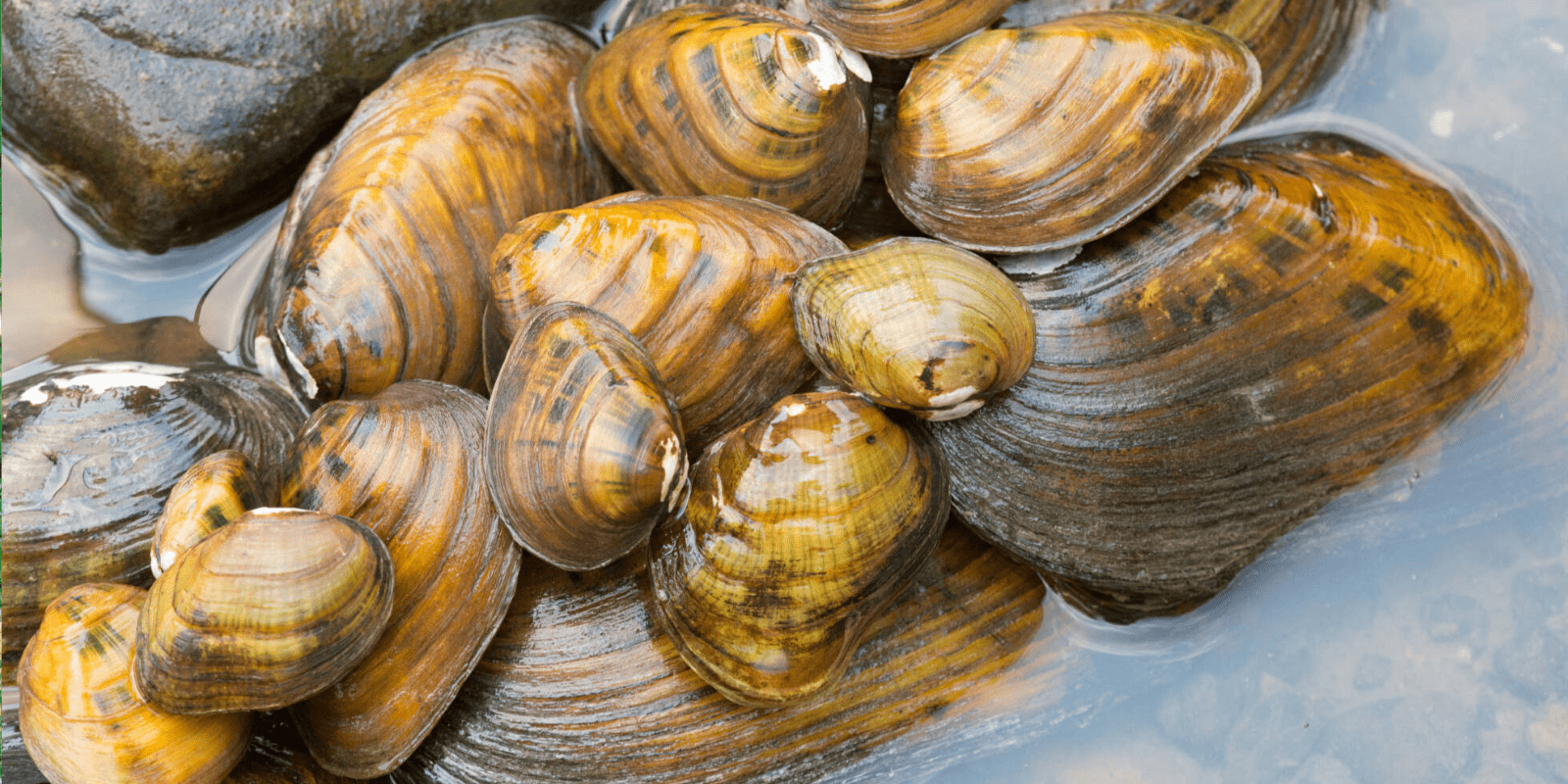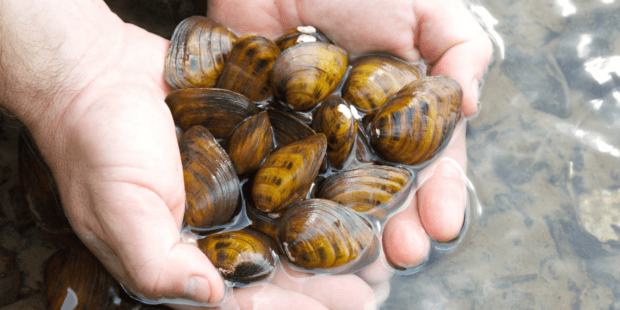We have much more to do and your continued support is needed now more than ever.
Mussels Finally Have Their Day—Will You Act On Their Behalf?

Next time you pour a glass of water, thank a mussel for its natural filtering services. Small but mighty, mussels remove pollutants from our freshwater streams, lakes, and rivers—worth millions of dollars as natural filtration plants. But mussels are struggling to survive, as they battle dirty water, habitat loss, a changing climate, competition from invasive species, and disease. Fortunately, the Recovering America’s Wildlife Act, now in front of Congress, could offer hope.
It’s not just Congress that’s offering optimism and shinning a light on these underappreciated critters—the “Mighty Mussels” baseball team of Fort Myers, Florida is giving us all something to cheer for. The team came out of its shell with the rebrand this December.
House Bill Could Help Mussels Recover
The best hope for the future of mussels is to pass the Recovering America’s Wildlife Act. Will you flex your muscle for mussels and for a third of America’s wildlife species now at risk of extinction?
We’re thrilled that the House Natural Resources Committee voted the bill out of committee and now it can move toward the House of Representatives floor for a vote by every Member of Congress. So far, we have 163 bipartisan cosponsors of the bill and we’re shooting for 200. We need your help to get there! Here is a list of existing co-sponsors.
Mussels need a big boost. Overall, 70 percent of freshwater mussels in North America are imperiled or have already gone extinct. Recent news of a mysterious die-off of hundreds of thousands of mussels in Virginia, Oregon, Washington, Wisconsin, and Michigan has scientists scrambling to find answers.
The Recovering America’s Wildlife Act will provide critical funds to states to save mussels that are purifying our waters. Every state has an action plan ready to go to bring back our wildlife and protect habitats before it’s too late.
Mussels are Mighty Water Filters
Just as a hull keeps a boat afloat, so do mussels hold up the entire freshwater ecosystem. Firmly anchored to the bottom of a lake or a stream bed, they suck in and expel water as they eat plankton—filtering out bacteria like E. coli, and even pharmaceuticals, pesticides, and flame retardants.

One single mussel can filter between 10 and 20 gallons per day! They also release nutrients important to aquatic plants and other small organisms. Their clusters of shells form underwater gardens for insect larvae and algae that are important feeding places for fish.
So important are mussels that recently 35,000 of them were reintroduced to the Anacostia River, right in our nation’s capital, and one of America’s dirtiest rivers. Right away, the mussels got to work filtering waters and benefiting millions of people. Many other states are actively restoring mussels to their waterways too recognizing this helps people and wildlife.
Standing Strong for Mussels
But if rivers are too polluted and silty, mussels die. That’s why the National Wildlife Federation works hard to keep a strong Clean Water Act. If mussels are to perform their purifying feats, we must be vigilant to keep as many pollutants out of our precious freshwater as possible.
The Southeast U.S. is super important for mussels, with a whopping 269 species—or 91 percent of all found in North America. This richness rivals the tropics—and represents some of the most imperiled environments in the world.
Alabama boasts the highest state diversity of mussels with 181 species, with 58 listed as threatened or endangered. They come with some adorable names, like fuzzy pigtoe, pink mucket, and downy rainbow (in case other teams are looking for a mascot).
Mussels are performing their filtration feats in 49 of our 50 states—very likely in a body of freshwater near your home. So please—pour that glass of water to drink and act on their behalf now!
Take Action!





















